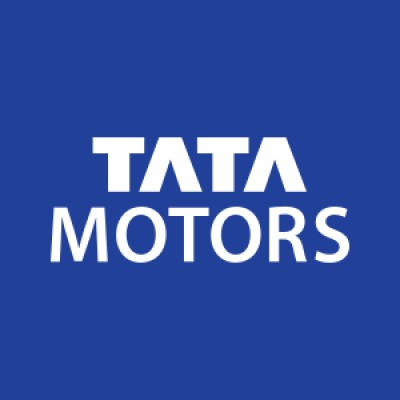Tata's Green Revolution: A Leap Towards Sustainable Mobility
August 14, 2024, 5:05 am
In a world grappling with climate change, the need for sustainable solutions has never been more pressing. Tata Group, a titan in the Indian industrial landscape, is stepping up to the plate. The recent partnership between Tata Passenger Electric Mobility Limited (TPEML) and Tata Power Renewable Energy Limited (TPREL) is a bold move aimed at transforming India’s energy and transportation sectors. This collaboration is not just a business strategy; it’s a vision for a greener future.
The partnership focuses on integrating rooftop solar systems with electric vehicle (EV) charging infrastructure. Imagine a world where your car charges itself while you soak up the sun. This is the essence of the initiative. TPEML is set to lead the charge in the EV market, while TPREL will harness its expertise in solar energy. Together, they aim to create a seamless, eco-friendly experience for consumers.
Accessibility is key. The duo plans to enhance the availability of solar-powered EV charging stations. This move is expected to cater to the surging demand for electric mobility in India. As the country shifts gears towards renewable energy, Tata’s initiative is a timely response to the growing need for sustainable solutions. It’s a step away from fossil fuels and a leap towards a cleaner, greener future.
But the partnership doesn’t stop at infrastructure. Raising awareness is crucial. TPEML and TPREL will educate consumers about the benefits of solar-powered EVs. Cost savings and environmental impact will be at the forefront of their messaging. The goal is to shift mindsets and encourage adoption. It’s about creating a culture of sustainability.
This collaboration aligns perfectly with the Indian government’s ambitious goals for renewable energy and electric mobility. The government is pushing for a significant increase in the use of renewable sources. Tata’s initiative complements this vision, positioning the group as a leader in the renewable energy and electric vehicle sectors. It’s a win-win for the environment and the economy.
As Tata Group forges ahead, it sets a precedent for other companies. The partnership is a beacon of innovation. It showcases how businesses can pivot towards sustainability while still achieving growth. The synergy between TPEML and TPREL is expected to drive further innovations in the renewable energy space. This could pave the way for more collaborative efforts within the industry.
In the realm of transportation, BEML (Bharat Earth Movers Limited) is also making waves. The company plans to export its Vande Bharat metro trains, aiming to tap into international markets. These trains are known for their advanced technology and high performance. They offer a glimpse into the future of urban transportation. With modern amenities and efficient designs, they promise to revolutionize how cities move.
BEML’s export initiative is a strategic move. It not only expands its footprint in the global transportation sector but also showcases India’s manufacturing capabilities. The Vande Bharat trains are a testament to Indian engineering prowess. They represent a shift towards high-speed, comfortable, and efficient urban transport solutions.
Meanwhile, Chennai is gearing up for a significant upgrade in its metro infrastructure. A new depot for driverless trains is in the works at Nookampalayam. This initiative marks a pivotal step in modernizing the city’s metro system. Driverless technology is the future, and Chennai is embracing it. The new depot will support the maintenance and operation of these trains, enhancing urban transportation efficiency.
As cities evolve, so do their transportation needs. The introduction of driverless trains is a response to the growing demand for efficient public transport. It’s about reducing congestion and improving the overall travel experience. Chennai’s move is a clear indication of the city’s commitment to modernizing its infrastructure.
In the building materials sector, major cement companies are reporting mixed results. While sales volumes have increased, revenues remain muted due to lower cement prices. This paradox highlights the challenges facing the industry. Increased construction activity is a positive sign, but pricing pressures are squeezing profit margins. The market dynamics are complex, and companies must navigate these challenges carefully.
Despite the hurdles, the growth in sales volumes indicates a rising demand for construction and infrastructure. It’s a sign that the economy is moving forward. However, the industry must adapt to the changing landscape. Companies need to innovate and find ways to maintain profitability in a competitive market.
In conclusion, Tata Group’s partnership to promote rooftop solar and EV adoption is a significant step towards a sustainable future. It’s a bold move that aligns with global trends and local needs. Meanwhile, BEML’s export plans and Chennai’s driverless train depot reflect a broader commitment to modernizing transportation. The cement industry, despite its challenges, shows signs of growth. Together, these developments paint a picture of an evolving India, one that is embracing sustainability and innovation. The road ahead is green, and Tata is leading the way.
The partnership focuses on integrating rooftop solar systems with electric vehicle (EV) charging infrastructure. Imagine a world where your car charges itself while you soak up the sun. This is the essence of the initiative. TPEML is set to lead the charge in the EV market, while TPREL will harness its expertise in solar energy. Together, they aim to create a seamless, eco-friendly experience for consumers.
Accessibility is key. The duo plans to enhance the availability of solar-powered EV charging stations. This move is expected to cater to the surging demand for electric mobility in India. As the country shifts gears towards renewable energy, Tata’s initiative is a timely response to the growing need for sustainable solutions. It’s a step away from fossil fuels and a leap towards a cleaner, greener future.
But the partnership doesn’t stop at infrastructure. Raising awareness is crucial. TPEML and TPREL will educate consumers about the benefits of solar-powered EVs. Cost savings and environmental impact will be at the forefront of their messaging. The goal is to shift mindsets and encourage adoption. It’s about creating a culture of sustainability.
This collaboration aligns perfectly with the Indian government’s ambitious goals for renewable energy and electric mobility. The government is pushing for a significant increase in the use of renewable sources. Tata’s initiative complements this vision, positioning the group as a leader in the renewable energy and electric vehicle sectors. It’s a win-win for the environment and the economy.
As Tata Group forges ahead, it sets a precedent for other companies. The partnership is a beacon of innovation. It showcases how businesses can pivot towards sustainability while still achieving growth. The synergy between TPEML and TPREL is expected to drive further innovations in the renewable energy space. This could pave the way for more collaborative efforts within the industry.
In the realm of transportation, BEML (Bharat Earth Movers Limited) is also making waves. The company plans to export its Vande Bharat metro trains, aiming to tap into international markets. These trains are known for their advanced technology and high performance. They offer a glimpse into the future of urban transportation. With modern amenities and efficient designs, they promise to revolutionize how cities move.
BEML’s export initiative is a strategic move. It not only expands its footprint in the global transportation sector but also showcases India’s manufacturing capabilities. The Vande Bharat trains are a testament to Indian engineering prowess. They represent a shift towards high-speed, comfortable, and efficient urban transport solutions.
Meanwhile, Chennai is gearing up for a significant upgrade in its metro infrastructure. A new depot for driverless trains is in the works at Nookampalayam. This initiative marks a pivotal step in modernizing the city’s metro system. Driverless technology is the future, and Chennai is embracing it. The new depot will support the maintenance and operation of these trains, enhancing urban transportation efficiency.
As cities evolve, so do their transportation needs. The introduction of driverless trains is a response to the growing demand for efficient public transport. It’s about reducing congestion and improving the overall travel experience. Chennai’s move is a clear indication of the city’s commitment to modernizing its infrastructure.
In the building materials sector, major cement companies are reporting mixed results. While sales volumes have increased, revenues remain muted due to lower cement prices. This paradox highlights the challenges facing the industry. Increased construction activity is a positive sign, but pricing pressures are squeezing profit margins. The market dynamics are complex, and companies must navigate these challenges carefully.
Despite the hurdles, the growth in sales volumes indicates a rising demand for construction and infrastructure. It’s a sign that the economy is moving forward. However, the industry must adapt to the changing landscape. Companies need to innovate and find ways to maintain profitability in a competitive market.
In conclusion, Tata Group’s partnership to promote rooftop solar and EV adoption is a significant step towards a sustainable future. It’s a bold move that aligns with global trends and local needs. Meanwhile, BEML’s export plans and Chennai’s driverless train depot reflect a broader commitment to modernizing transportation. The cement industry, despite its challenges, shows signs of growth. Together, these developments paint a picture of an evolving India, one that is embracing sustainability and innovation. The road ahead is green, and Tata is leading the way.

